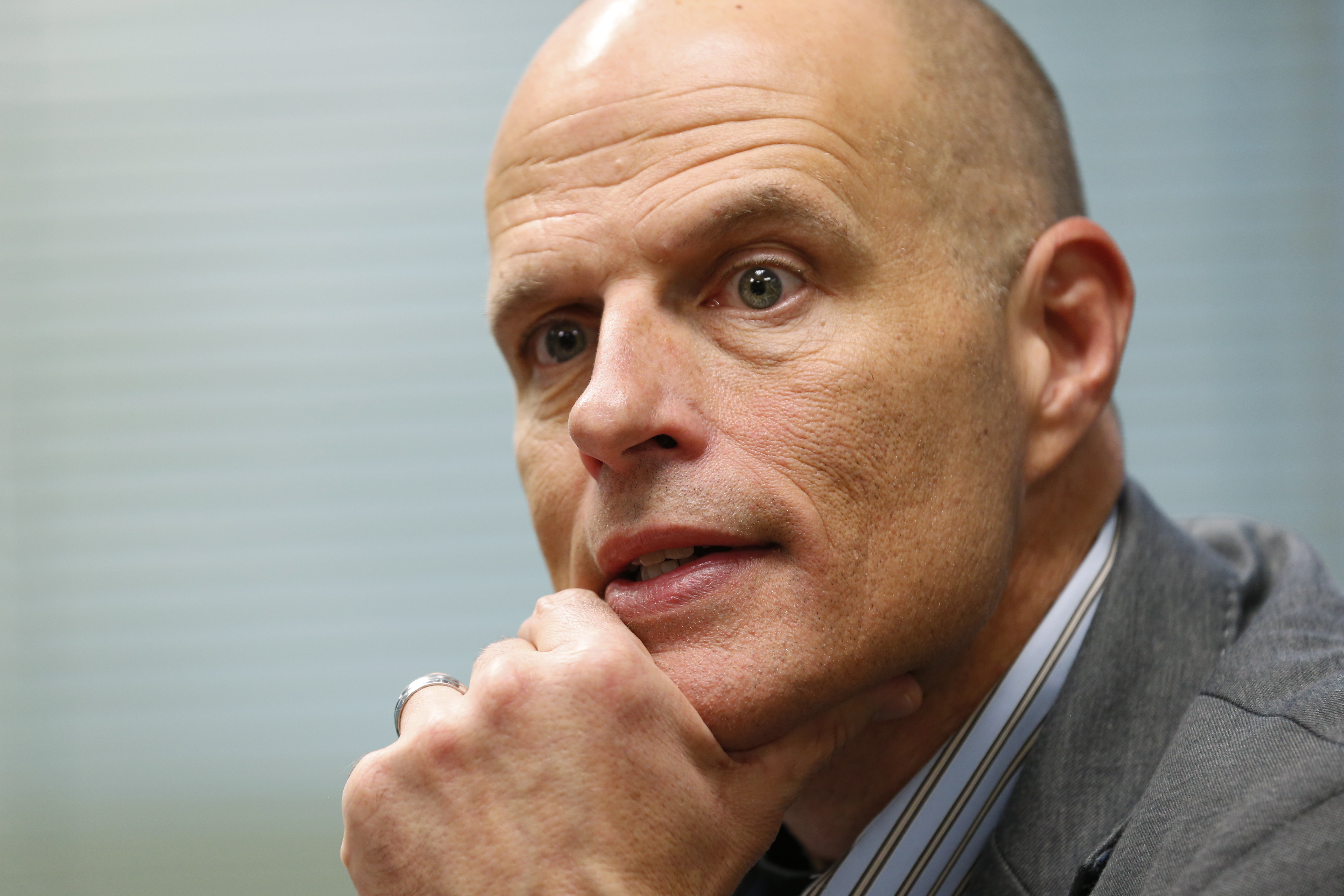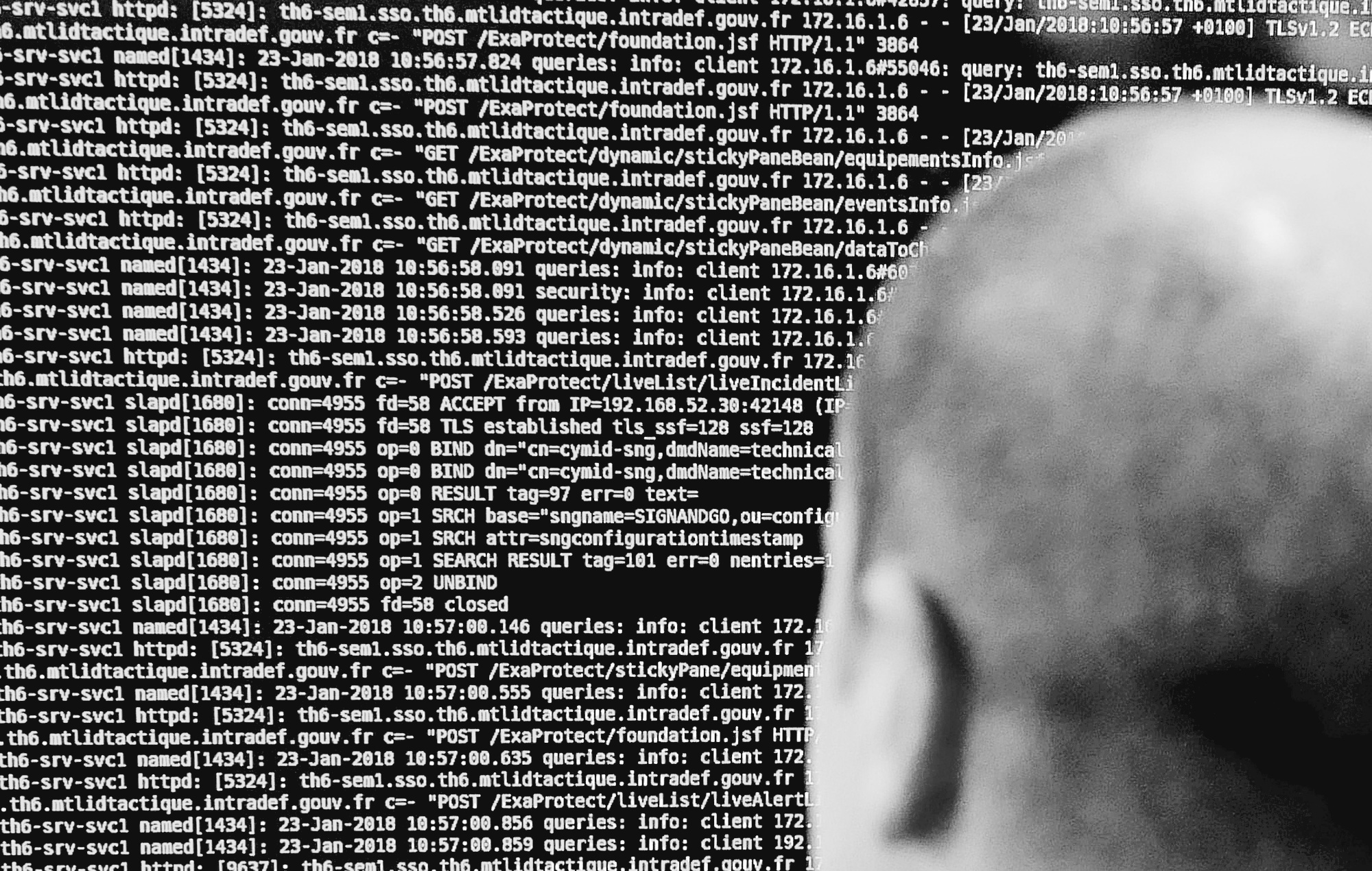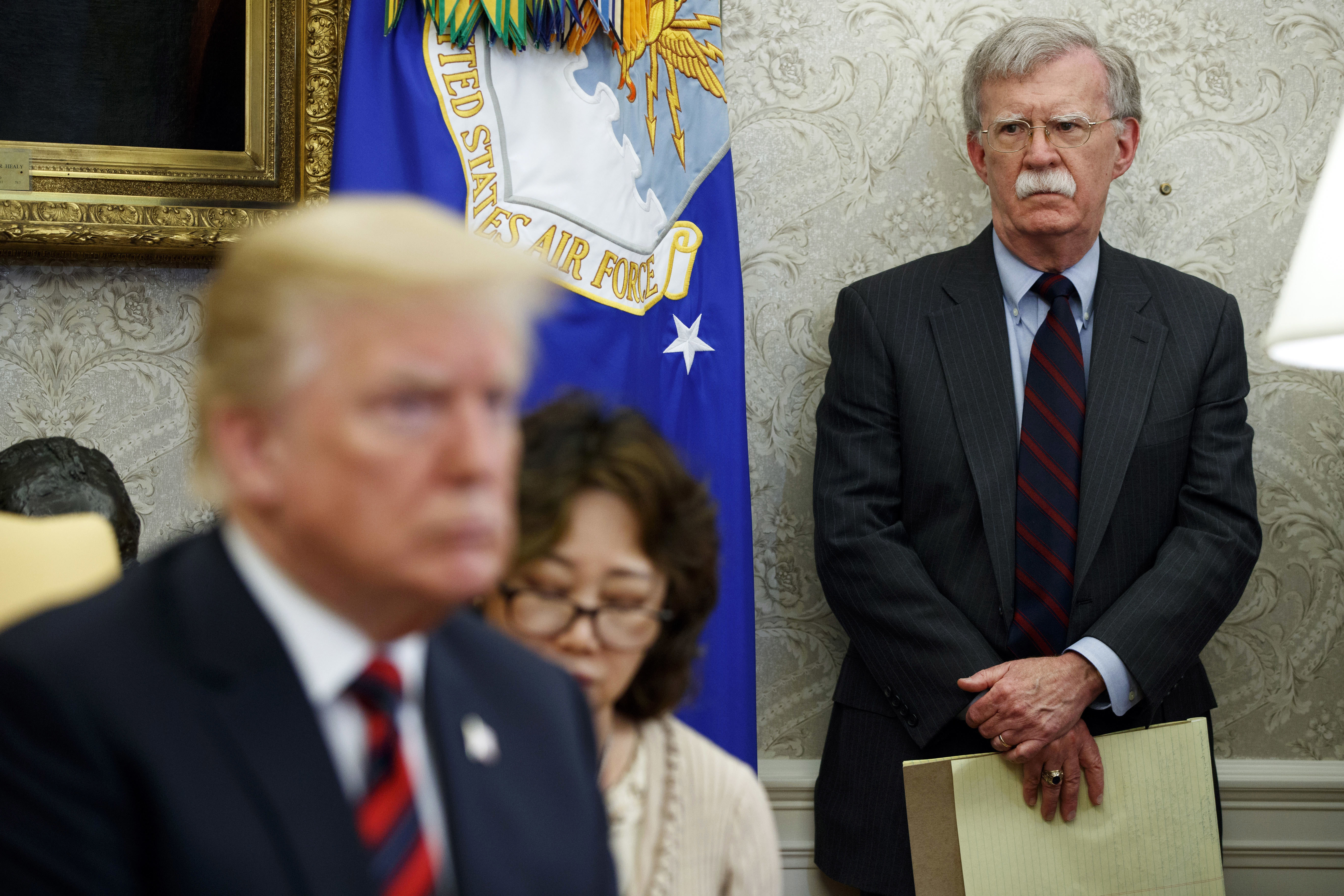
The notice to Congress from the White House was met with confusion: Why would President Donald Trump withdraw his nominee to lead U.S. Immigration and Customs Enforcement?
Longtime border official Ron Vitiello appeared to be cruising toward confirmation. One Senate committee had endorsed his nomination and a second was likely to follow suit despite opposition from some Democrats and a union representing some agency officers.
No one in the Department of Homeland Security, which oversees the immigration agency, had been notified about the intention to remove Vitiello from consideration, according to people familiar with the decision. Officials at Homeland Security and congressional aides thought it must have been a paperwork error made by the White House personnel office that would be resolved quickly.
Turns out, it wasn’t a mistake. It was just another day in the Trump administration.
The president on Friday confirmed he had pulled the nomination, even as he called Vitiello a “good man.”
“But we’re going in a tougher direction. We want to go in a tougher direction,” he said.
Trump did not explain what that meant and did not say whom he had in mind as a replacement. But the decision, first reported by The Associated Press, comes as his administration is struggling to deal with an influx of Central American migrants, which has led to a 12-year high in U.S.-Mexico border crossings, straining the U.S. immigration system.
Trump had threatened to close the border entirely to cope with the flow, before backing off this week.
In a letter addressed to all ICE employees Friday, Vitiello thanked the president and members of Congress for their support.
“No matter the external circumstances, I am grateful knowing you remain engaged and dedicated to the critical work of protecting our communities from the transnational criminal organizations and cross-border crime that threatens our nation,” he wrote.
“While I will not become the permanent director of ICE, I look forward to working alongside you in serving the American public with Integrity, Courage, and Excellence.”
Six government and congressional officials involved in immigration issues suggested the decision to drop Vitiello could be an impulsive staff shake-up driven by the fact that White House policies intended to stop migrants have not succeeded. Many blamed Stephen Miller, the influential West Wing aide, for the decision on Vitiello and saw it as part of a plan to replace longtime immigration officials with hard-liners who appealed more to allies of Trump and Miller. The officials were not authorized to discuss internal deliberations and spoke on condition of anonymity.
Vitiello had been scheduled to travel with Trump to the border Friday but was told late Thursday he wasn’t going, one of the people said.
He has been acting head since June of the agency that enforces U.S. immigration law in the interior of the United States. He has more than 30 years of law enforcement experience, starting in 1985 with the U.S. Border Patrol. He was previously Border Patrol chief and deputy commissioner of U.S. Customs and Border Protection, which oversees the patrol.
Vitiello was respected by his staff as a border veteran, but his experience mostly with Border Patrol, made him an odd fit to some at ICE, and some veterans of the agency said he never seemed totally in his element. He ran afoul of some of the union leadership, which opposed him in part because they said he was disingenuous. Union leader Chris Crane wrote a letter to the senators saying citing certain tweets Vitiello made from a private account, arguing he “lacks the judgment and professionalism to effectively lead a federal agency.”
He took over during a time of heightened scrutiny of the agency. Part of its mission is to arrest immigrants who are in the U.S. illegally, and that has made the agency a symbol of Trump’s policies and a target for Democrats.
Trump has been railing against increasing border crossings, as well as the release of thousands of migrants into the U.S. because of a lack of space to hold them, a move he derides as “catch and release.”
It’s a battle cry on a signature issue for the president, who wants to restrict immigration but whose policies have largely failed to do so.
For many years, families arriving at the border were typically released from U.S. custody immediately and allowed to settle with family or friends in the U.S. while their immigration cases wound their way through the courts, a process that often takes years.
But in recent months, the number of families crossing into the U.S. has climbed to record highs, pushing the system to the breaking point. As a result, ICE was releasing families faster, in greater numbers and farther from the border. Since Dec. 21, the agency set free more than 125,000 people who came into the U.S. as families.
Trump on Friday was touring a recently built portion of replacement fencing that he is holding up as the answer to stop the recent surge of migrant families coming to the U.S.
Though the 2-mile section is only a long-planned replacement for an older barrier, the White House describes it as the first section of his proposed border wall. It’s commemorated with a plaque bearing Trump’s name and those of top immigration and homeland security officials — but not Vitiello’s.q



















